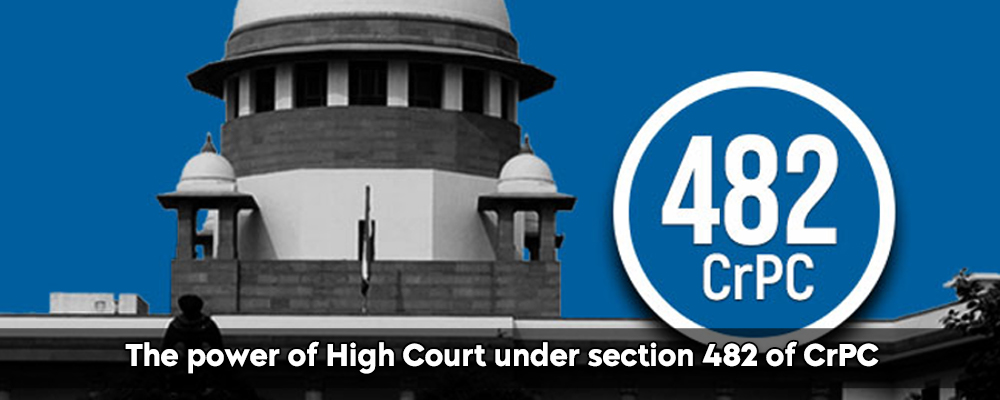One of the inherent powers of the Indian High Courts is the ability to suppress a FIR (First Information Report). Even before the Criminal Procedure Code (CrPC) was created, courts had this authority. It is a copy of Section 561(A) of the 1898 law and was added as Section 482 by a change in 1923. The clause was introduced as a reminder to the courts that they exist to stop injustice done by a subordinate court since high courts are unable to do justice even in situations where the illegality is obvious.
There is nothing in this code that “shall be deemed to limit or affect the inherent powers of the High Court to make such orders as may be necessary to give effect to any order under the code, to prevent abuse of any court’s process, or to secure the ends of justice in any other way.”
The High Court’s inherent authority under Section 482 of the Criminal Procedure Code may be used to:
- Implement a Code order.
- To stop misuse of the court’s procedures.
- To further the goals of justice in various ways.
Need A Legal Advice
The internet is not a lawyer and neither are you. Talk to a real lawyer about your legal issue

Purpose
The intent behind its introduction is made apparent in this clause, which states that the provisions of the Code are not meant to restrict or otherwise interfere with the inherent authority of the High Courts. Of course, only one of the three objectives listed in the section may be used to exercise the inherent authority. This innate ability is inherently inapplicable to any situation covered by the particular provisions of the Code. Additionally, if using it would violate any of the particular prohibitions of the Code, it cannot be used. Section 482 can only be put into effect if the relevant item is not covered by any particular Code provision. In addition, the use of this authority must be for one of the three purposes listed in the section. Legislators undoubtedly make an effort to address all cases that are likely to arise when establishing procedural rules, but it is unlikely that any such law, no matter how carefully it may be written, would be able to address every case that might potentially arise in the future. Sometimes gaps in procedural law are found, and it is for this reason that procedural law always acknowledges the presence of inherent powers in courts, filling those gaps and handling the circumstances where such gaps are found. It is crucial to note that only the High Court’s inherent authority has been acknowledged by Section 482, and even with regard to the High Court’s inherent authority, certain legislative protections have been established regarding its execution.
Case Law
In the case of Parvin Juneja V. Directorate of Enforcement & Anr., An accused in a money laundering case has been given permission by the Delhi High Court to go overseas for his son’s admission. The court emphasized that even if someone is on trial, they shouldn’t be prevented from enjoying unique moments in life.
When weighing Juneja’s appeal, Justice Swarana Kanta Sharma stated that a parent’s attendance and support are essential because a child’s admittance to a university is a big milestone. The court acknowledged that for a parent, kid, and family, being present is a prized right and opportunity. As a result, it gave Juneja permission to visit Canada for 15 days in order to arrange for his son’s entry. The judge did place certain restrictions on Juneja, though. Prior to his trip, he had to provide a complete itinerary and all the specifics of his accommodations. He also had to provide the Registry with a receipt for a Rs. 1,000,000 fixed deposit.
The court noted that it must balance a person’s personal freedom with the requirements placed on them to secure their appearance at trial. In Juneja’s instance, the court took into account his prior behavior, noting that he had received authorization to travel overseas almost 20 times without breaking any rules or requirements. He had always made a timely exit for India. Given this, the court came to the conclusion that Juneja had not abused his freedom and gave him permission to go to Canada to have his kid admitted.
Free legal advice, legal services, and online information are all offered by Lead India. The best thing to do in this circumstance is to talk to a lawyer and ask a legal question.





 Talk to a Lawyer
Talk to a Lawyer